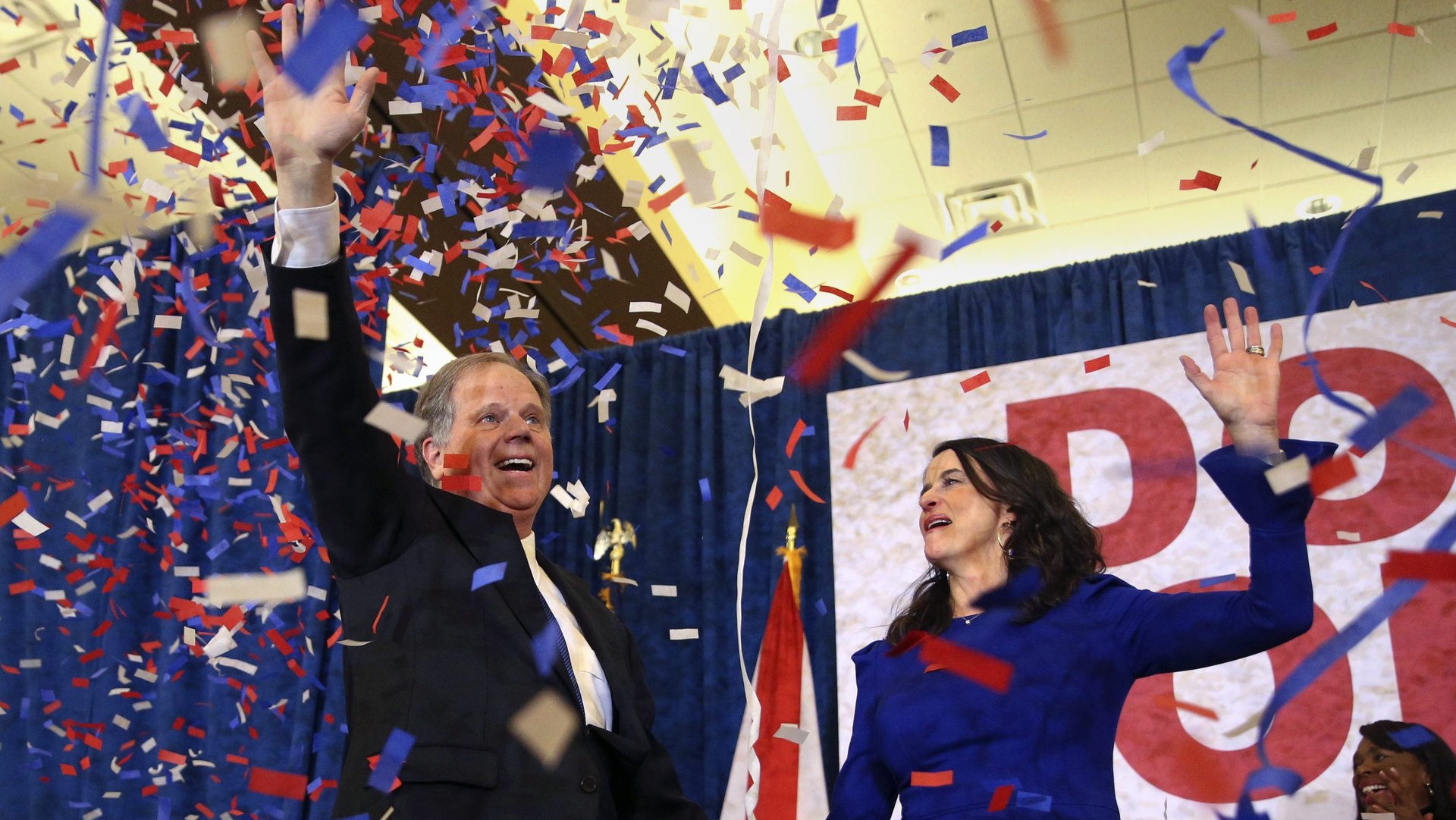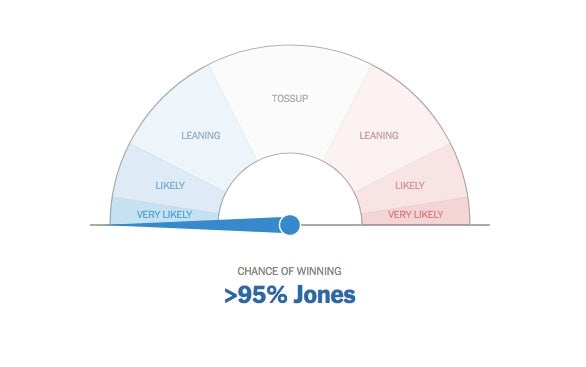How I, the New York Times election needle, turned failure into my greatest advantage
Think about the worst day of your career. The most awkward, mortifying experience you ever had in the workplace. Maybe you showed up unprepared for a meeting? Referred to a longtime coworker by the wrong name? Insulted the boss’s husband at a Christmas party? All of that pales in comparison to the humiliation I experienced on November 8, 2016.


Think about the worst day of your career. The most awkward, mortifying experience you ever had in the workplace. Maybe you showed up unprepared for a meeting? Referred to a longtime coworker by the wrong name? Insulted the boss’s husband at a Christmas party? All of that pales in comparison to the humiliation I experienced on November 8, 2016.
Listen, I didn’t come up with the idea. I just saw an ad on LinkedIn: “The New York Times seeks an energetic and forward-thinking needle for a few days’ work per year. Must have experience moving left and right. Great professional exposure. Bonus if you can copy-edit.” Sure, I thought. Beats the thermometer gig (freezing!), and last time I worked a Twister box, they left me in there for three years. I’ve got medical conditions to think about, and the Cylindrical Objects Guild has crappy health insurance.
When the Times sent me out that Tuesday, I was feeling great. As the afternoon approached, I leaned right—my right, your left; literally and politically—and customers responded. I was getting the job done, and they were satisfied.
And then I thought of a quote written on a whiteboard in my office: “We see our customers as invited guests to a party, and we are the hosts. It’s our job every day to make every important aspect of the customer experience a little bit better. —JEFF BEZOS.” Maybe satisfied wasn’t enough. Maybe I’d been hired to more than satisfy; maybe I was here to disrupt election-metering entirely. Maybe this was my time to move the needle on moving needles.
So I decided to switch things up. I leaned back to the center, and then to the left (my left, your right). That got their attention. I leaned harder. All eyes were on me. They couldn’t look away, so I figured I was crushing it. With this many eyeballs, the Times was sure to promote me. Goodbye, copy-editing!
It wasn’t until the votes were all tallied that I realized something was wrong, that apparently there is such a thing as bad press. “Panic meter,” they called me. “Driving us insane,” they said. “Dangerous for journalism.” “Bad for humanity.” “I’m still having nightmares.” I had taken a huge professional risk, and as it turned out, it didn’t pay off.
The Times couldn’t fire me —COG union rules—but they did move me out of my office, into a cubicle surrounded by other innovations of yore. “Interactive graphics? Animated simulations? I did all of that first,” Snow Fall ranted from one desk over, clearly a few gulps of whiskey deep. “Now no one even cares.”
A lesser needle might have tapped out at this point. But as a Post-It in my cubicle says: “Success is not final, failure is not fatal: It is the courage to continue that counts. —WINSTON CHURCHILL.”
So I studied up. I read about the Republicans’ plan to strip so many Americans of their access to affordable health insurance, their plan to give tax breaks to corporations and the wealthy, and their plan to ignore looming environmental crises in the service of outdated industry. I listened to congressional testimonies and countless speeches, and read every article I could get my point on about the Trump campaign’s possible collusion with Russia. By the time the Times told me I’d get another shot—the 2017 Alabama Senate contest between Roy Moore and Doug Jones—I knew to read up on the allegations against Moore, and to look into how damaging his actual policies might be.
When Dec. 12 rolled around, I was ready but nervous. Fortunately I had a Post-It quote for that: “I learned that courage was not the absence of fear, but the triumph over it,” said NELSON MANDELA. “The brave man is not he who does not feel afraid, but he who conquers that fear.”
So I stood up. I tilted ever so slightly to the left (my left, your right), and then ever so slightly back. I took my time, not hastening any decision, avoiding taking risks just for the sake of it. I thought back through my years of experience: the clock, the scale, even the outdoor thermometer. I considered what I had learned in all those positions: to stay true. To be reliable and accountable. To be trustworthy.
So I leaned right. More. A little more. It was just like November 2016—everyone watching, waiting for me to disappoint—except this time I didn’t. I kept leaning, and then I dropped low, and the crowd went wild.
It’s easy to turn professional failure into lasting insecurity, to let it prohibit you from trying again. But in business, as in life, that attitude is a self-fulfilling prophecy. If you don’t think you can succeed, you won’t. So instead of letting the haters get you down, learn from your mistakes. Prepare for your next attempt, and believe that you can do better. After all, if the most hated needle in news can stage a dramatic comeback, anyone can.
